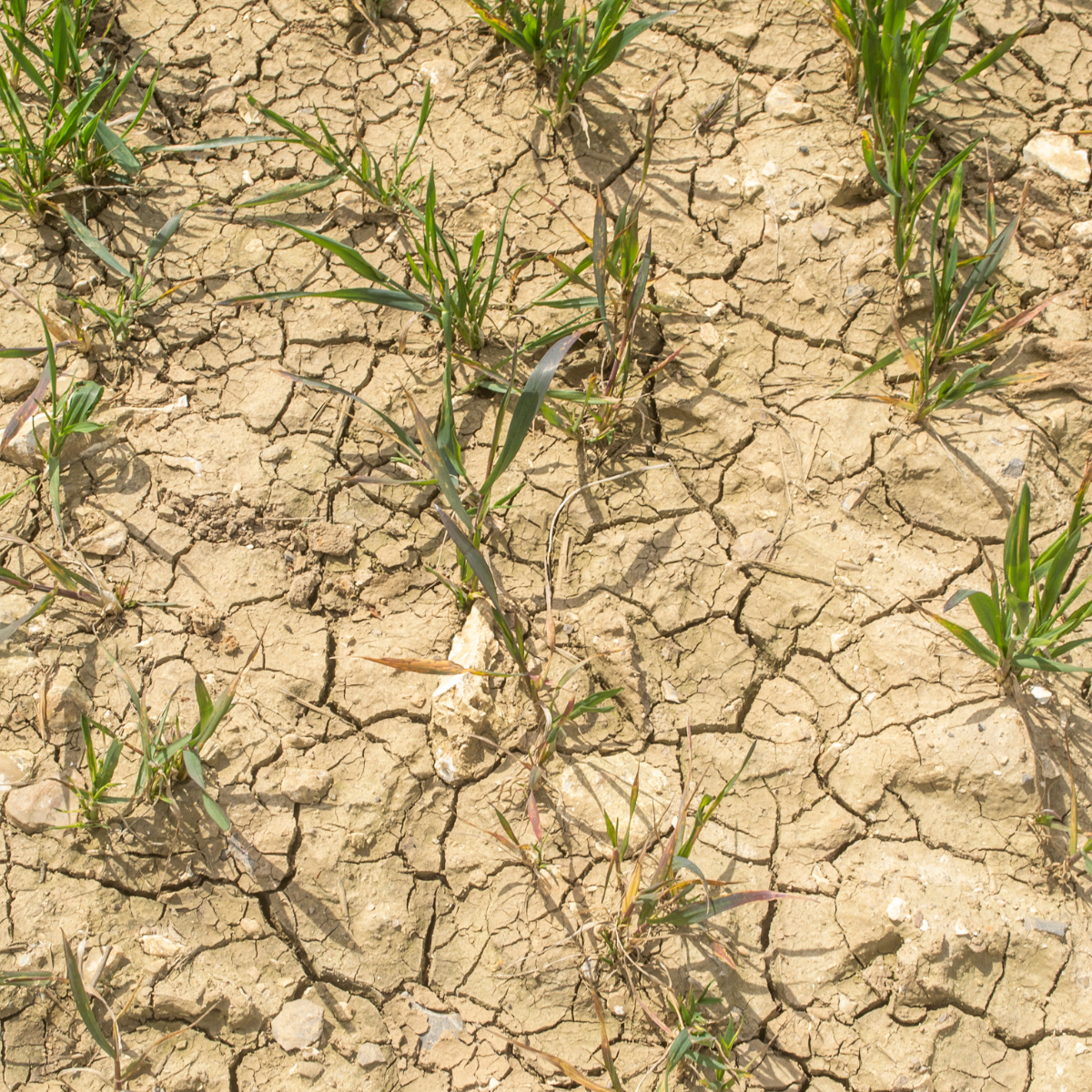World Day to Combat Desertification and Drought

Drought and desertification are both extreme environmental challenges that affect over 2 billion people worldwide. Although the UK is not currently experiencing drought, this situation can change rapidly and unexpectedly. As global temperatures continue to rise, the UK faces the potential for an increased frequency of droughts.
We have discussed the dreaded D words before, focusing heavily on drought. Our water resources specialists have contributed to the National Drought Group workshops, created drought plans, and assisted in managing resources during dry periods across the agri-food sector.
Our clients are sometimes surprised to learn that 'drought' has different meanings, impacts everyone, and varies across regions. This has sparked numerous debates about its exact definition. However, there are four commonly used descriptions of the different types.
Hydrological drought: This type of drought is associated with the effects of periods of precipitation shortfalls on surface or subsurface water supplies in groundwater, reservoirs, rivers, and streams. They can cover extensive areas and impact the surrounding areas for months and even years.
Agricultural drought: Agricultural drought refers to circumstances when soil moisture is insufficient to sustain crop growth and production. It is particularly susceptible to high temperatures and drying winds, which greatly increase the soil moisture deficit, leading to crop failure if irrigation is not applied.
Ecological drought: This can be defined as the prolonged and widespread deficit in soil moisture or biologically available water that imposes multiple stresses on terrestrial and aquatic ecosystems.
Engineering drought: The final type of drought is engineering drought, which results from a water supply system unable to meet increased demand brought on by a heatwave or a hydrological drought.
Long-term/short-term
There are differences between short-term and long-term droughts in terms of duration, effects, and monitoring. A short-term drought is a weather pattern that produces a precipitation deficit that lasts for a few weeks or months, whereas a prolonged drought is one that lasts for more than six months without precipitation.
Droughts can be difficult to track due to their varying intensities and duration. Although UK weather is famously temperamental, there has been a noticeable increase in both temperatures and rainfall levels across the country, with a general decline in the longest sequence of consecutive dry days in recent decades. According to the Met Office, the distribution of rainfall will determine future UK drought risk.
Future projections have predicted that, whilst there is little to no change in drought frequency across the UK today, as temperatures continue to rise, the risk of reduced rainfall will have the potential to dramatically increase the occurrence of severe, long-term droughts, leading to devasting environmental and societal impacts.
What needs to be done?
Consideration must be given to short-term and long-term solutions to help mitigate the consequences of drought. The immediate problem requires the control of groundwater or other stored water in rural and urban areas, with an option to store rainwater to reuse in drought.
Long-term solutions call for strong regulatory leadership and a cautious strategy. A balance between supply and demand, different user needs, and irrigation are just a few important considerations. Despite this, it is important to remember that each sector will view its priorities differently, and this balance is also weather-dependent.
Conclusion
We at Envireau Water will always monitor the situation carefully on behalf of clients whose water supply is critical to their business and will issue updates periodically throughout the year. That said, the latest Environment Agency irrigation prospect report advised of good prospects across the country, with normal to above-normal river flows and groundwater levels into the summer months.
Whilst no immediate risk of drought is reported, and the impacts of El Niño led to a soggy start to the year, our water resources specialists commented;
"We cannot reiterate enough the importance of planning to increase your water resilience against drought. The UK's climate is famously unpredictable, and with climate change increasing the frequency of extreme weather events, there is no better time to review your water supplies and how they stand up to drought."
Our dedicated team, comprising James, Tamsin, Harriet, and Sophie are experts in water management and are on hand to help you. Contact info@envireauwater.co.uk, or call 01332 871 882 to access their services and support.
About Envireau Water
Envireau Water is a team of expert water scientists and engineers who provide guidance on the management and regulation of natural water systems across the UK. By working collaboratively with our clients and regulators, we deliver robust, sustainable solutions that meet the requirements of all stakeholders. With an incredibly loyal client base and our ability to work seamlessly throughout the four nations of the UK, many of our clients know us individually and trust us to find resolutions to their water problems for years to come.







